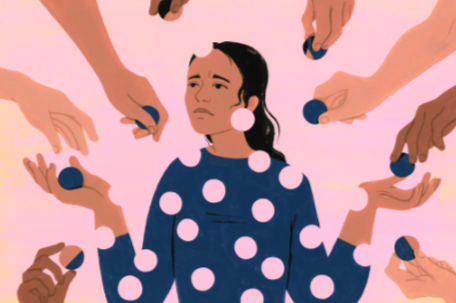Being a people pleaser might sound like a noble endeavor. Who wouldn't want to be known as considerate and accommodating? Yet, beneath this seemingly virtuous behavior lies a pattern riddled with problems, both for the people pleaser and those around them.
In this article, we delve into the complexities of people-pleasing behavior, explore its origins, and offer practical advice on breaking free from this self-destructive cycle.

The People Pleaser's Dilemma
At its core, people-pleasing is a form of deception. It involves suppressing one's true feelings, desires, and needs to conform to others' expectations. This constant self-sacrifice leads to internal conflicts, hidden resentments, and a sense of inauthenticity.
The Perfect Lover Facade
People pleasers often act like the perfect partner, agreeing to plans they secretly despise and hiding their true feelings. This behavior creates confusion and frustration for everyone involved.
The inability to express authentic needs and ambitions can turn relationships into a facade, eroding trust and genuine connection.
The Roots of People Pleasing
To understand and empathize with people pleasers, we must explore the origins of this behavior, often rooted in early experiences with authoritative or emotionally unstable caregivers.
Fear of Displeasure
Many people pleasers grew up in environments where expressing disagreement or personal desires led to severe consequences, such as a parent's volcanic rage. Survival meant constantly second-guessing and aligning with others' expectations, often at the cost of one's true self.
Acts of Love and Protection
In some cases, people pleasers lied or conformed out of love and a desire to protect vulnerable family members. They learned to prioritize others' needs to avoid adding more stress to an already difficult or sad life. This protective instinct, while understandable, becomes maladaptive in adulthood.
Breaking the Cycle

Recognizing and addressing people-pleasing behavior is crucial for healthier relationships and personal well-being. Here are three paths to overcoming this pattern:
1. Reframe Relationships
Remind yourself that your current relationships are likely very different from those that shaped your anxieties in childhood. Most people can handle a bit of contradiction, unwelcome information, or occasional rejection when communicated politely. Understanding this can help reduce the fear of negative reactions.
2. Acknowledge the Harm
While people pleasers often have good intentions, their behavior can inadvertently harm others. At work, withholding doubts and reservations can endanger projects. In personal relationships, staying out of a sense of obligation rather than genuine affection wastes both parties' time. Recognizing these harmful effects can motivate change.
3. Develop Artful Communication
As adults, we have the capacity to communicate difficult messages effectively. Learn to be firm in your views while remaining genial. It's possible to say "no" with goodwill, disagree without demeaning, and end relationships respectfully. This balance allows you to be pleasant without compromising your authenticity.
People-pleasing is a complex behavior rooted in fear, love, and protection. By understanding its origins and recognizing its detrimental effects, individuals can begin to break free from this pattern.
Embracing authentic communication and reframing relationships can lead to more fulfilling and honest connections. Remember, it's possible to be kind and considerate without losing yourself in the process.

Comentarios